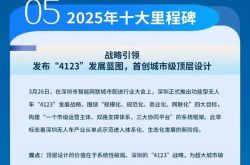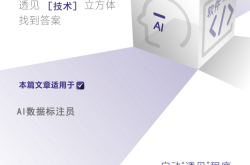Female developers on campus, aiming to become rich ladies
![]() 08/11 2025
08/11 2025
![]() 537
537
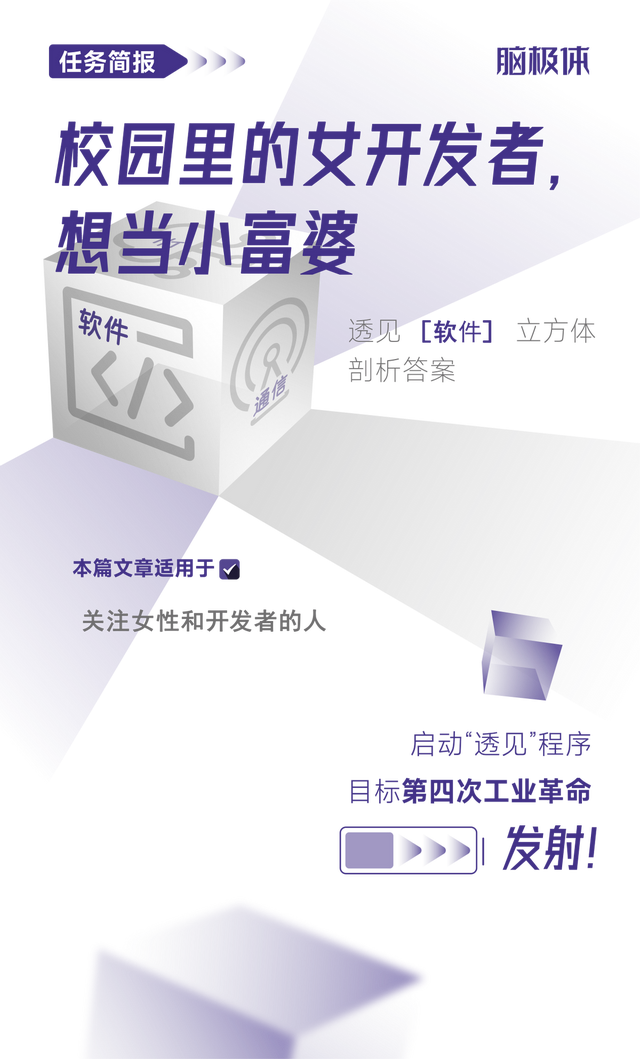
In mid-July 2025, the summer vacation at Zhengzhou University of Light Industry had already begun, and the campus was sparsely populated. We visited Meiker Studio on the second floor of the Comprehensive Building, where several long tables were put together, and dozens of students were still sitting in front of computers.
Chen Lin (pseudonym), who is about to enter her senior year, was debugging a page for a HarmonyOS app. On the white background, she kept changing the positions of several buttons. Next to her laptop, she wrote, 'Course schedule module, morning classes with a light yellow background'.
This is a new project at the studio called the 'Rich Lady Plan', which allows girls to develop practical apps themselves and earn money if they succeed. Chen Lin was the first to sign up. She felt that the existing class software was not user-friendly and planned to create her own.
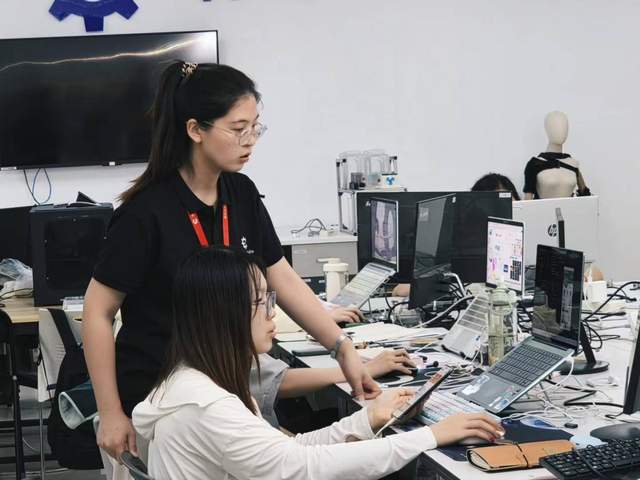
To develop apps, she chose to stay on campus during the summer vacation. She would arrive at the studio at 8:30 a.m. every morning and often didn't leave until after 10 p.m. when the doors were locked. When she was busy, she would spend the night on the studio's camp bed.
"Others have it easy in college, I don't know what you're busy with, and you don't even go home during vacations", she would be scolded by her parents when she called home. Sometimes, the female student D would also get impatient,
"Busy with what? Busy figuring things out. If I like something, I don't have to ask anyone for money, I don't have to look at anyone's face, I can earn money myself. Ideally, I want to save up and buy my own small apartment. Even if it's just one room, I can decide everything behind my iron door."

So, when she learned that the studio was preparing the 'Rich Lady Plan', Chen Lin immediately and excitedly said, 'I want to join!' As for how to become a 'rich lady', she wasn't sure, but her hands typing the code didn't hesitate for a second.
On this day, we stepped into the world of these female developers on campus.

Teacher Li Yihao is the head of Meiker Studio. He told us, "Over the years, I've found that it's not easy for girls to find employment in computer science."
"First, they can't stay up late like boys. Many girls have told me, 'Teacher, my hair is falling out badly, I can't handle staying up all night.' Second, they can't carry heavy things. Like when debugging equipment and moving servers, their physical strength can't keep up. Third, their thinking focus is different. Our thinking is still influenced by evolution. Women's previous division of labor was mainly gathering, so they are generally not good at long-chain logical thinking. But their eyes and sensitivity to color are exceptionally well-trained - you ask boys to choose color numbers and match colors, and it's a disaster."
For example, the UI design of HarmonyOS requires a strong sense of aesthetics. The studio has many projects based on the HarmonyOS system. The interfaces created by boys always feel like they're missing something, while the color numbers and layouts adjusted by girls look very nice.
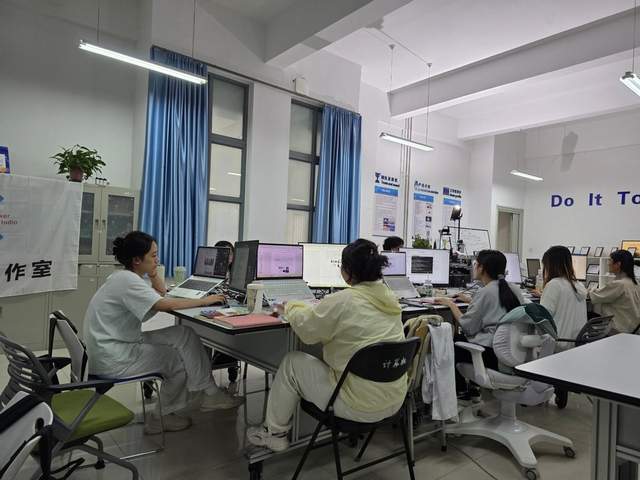
Teacher Li continued, "There's also the database. Many girls have been saving money since they were young. They record every penny they spend in a little notebook. Isn't that the same as adding, deleting, modifying, and querying in a database? So, they can quickly get the hang of using the Gauss database." Therefore, Teacher Li suggested that female students use the Gauss database to build independent HarmonyOS sites on it.
These are projects that girls can do very well. Even if they enter the job market in the future, they can rely on these as side hustles to achieve economic independence. That's how the 'Rich Lady Plan' came about.
Regarding the relationship between the studio and the 'Rich Lady Plan', Teacher Li made an analogy. He said it was like: genetics and mutation.
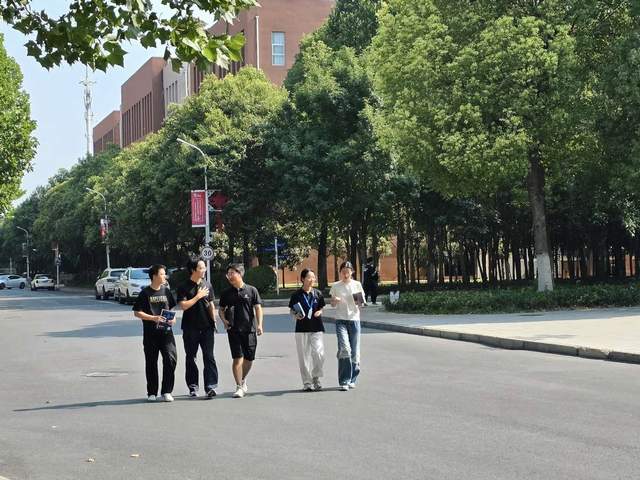
The studio has been operating for 11 years and has accumulated a lot of experience. It knows what works and what doesn't, and also knows how much room to leave for students to make mistakes. This is 'genetics'. As long as it doesn't violate school rules and laws, students can form their own teams to do projects, and applications for funding and venues are approved. This is called 'mutation'.
"Students of different majors and genders coming together can always come up with new ideas and attempts", Teacher Li explained. And the 'Rich Lady Plan' launched at the beginning of this year is the studio's latest 'mutation'.

Are girls good at development? Can they really earn money by writing code? Many people have this doubt.
"Girls who do well in development are not fewer than boys." Teacher Li pointed to a wall full of trophies and certificates and said to us, "Look at these awards from the Huawei Developer Contest and GeekPwn, all led by girls."
Currently, among the core members of Meiker Studio's 'Phoenix Society', three girls, including Chen Yuling and Huang Ziqi, manage the entire team along with three boys. "There's no special treatment, they fought their way up. The criteria for Phoenix Society members are simple: psychological stability, strong stress resistance, and online technology and aesthetics. Whoever meets the criteria gets in", Teacher Li emphasized.

Although there is no difference in ability, the starting points for male and female students to get into software development are indeed different.
Taking Zhengzhou University of Light Industry as an example, it is predominantly engineering-focused, with few female students in mechanical and electrical engineering majors. In a computer science class of 55 students, there are only a dozen girls. Therefore, in the early days of studio recruitment, boys accounted for 90%, and girls who joined mostly could only assist and didn't even have the opportunity to take charge of core tasks - which was unfair.
The traditional software development ecosystem also has hidden barriers. Android and Oracle emphasize logical closure and performance optimization. The core abilities are endurance and the ability to stay up late, which can easily deter girls when they first come into contact with it.
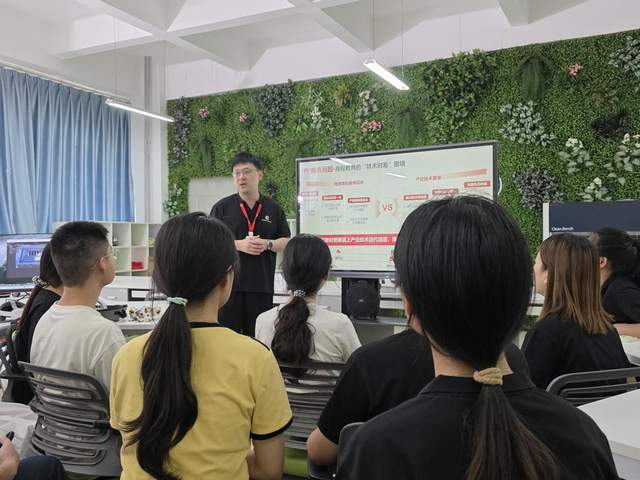
Against this backdrop, how did the female developers at Meiker Studio grow little by little and successfully 'mutate' into the Rich Lady Plan?
Teacher Li mentioned four words: educate without discrimination. He believes that since it is education, it must be tailored to everyone without discrimination. The premise of tailoring is to see differences. Seeing differences is not to reinforce them in reverse, such as emphasizing that girls are not suitable for this or boys can't do that well, which would only amplify those differences. Seeing differences is not to turn girls into male programmers, but to 'help them get on the horse and send them on their way'.
For example, in 2018, the studio launched the Athena Project, a full-female developer project. This group was led by girls to do projects, with boys assisting.

The girls in the Athena group have done many 'strange' projects. For example, a small flower that can detect heartbeats, which 'blooms' when happy and 'bows' when sad. In Teacher Li's view, these projects couldn't be used in competitions and didn't help with job hunting, but for girls, completing a closed loop of project development builds their confidence little by little.
This is indeed the case. Zhang Qian (pseudonym) was once a member of the Athena group and one of the first participants in the 'Rich Lady Plan'. She said that joining the Rich Lady Plan was not just about earning money but also about creating an app from scratch, launching it for others to use, and proving, 'I can do this'.

After years of operation, many members of the Athena group have grown into independent team leaders, and there are now more and more female role models for new students and younger sisters.
For example, Chen Yuling, the leader of the IOT group, originally majored in marketing. She has been at the studio for four years since her freshman year, learning software development from scratch, and now leads a team of over 20 people. The HarmonyOS device interconnection project she led won the second prize at the Huawei Developer Contest in 2024. "Some people say, 'Girls are not technically capable and can't lead projects', but I just kept going step by step and asked senior students and seniors for advice," Chen Yuling remembered feeling tired and wanting to give up in her freshman and sophomore years. "Senior sisters always told me, 'Try again', and now I tell my junior sisters the same thing."


From a disproportionate gender ratio of 1 girl to 9 boys to a balanced gender ratio with girls now at the core of projects, Meiker Studio has proven through 11 years of practice that true technological inclusivity is not denying differences but seeing them.
The so-called 'educate without discrimination' is to eliminate barriers for everyone to enter the technological world. Only by acknowledging the real existence of differences can we accurately calibrate and more targetedly empower everyone.

There is a proverb: 'Every flower has its season', meaning everyone will have their moment of glory at the right time.
The members of the 'Rich Lady Plan' are ushering in the best season for female developers.
Zhang Qian (pseudonym) is the project leader of an autism screening device and also participates in the 'Rich Lady Plan'. According to her, the difference between the Rich Lady Plan and other competition projects at the studio is that, "Projects for competitions also have plans for implementation, but the 'Rich Lady Plan' is more explicitly aimed at commercialization." Therefore, the first batch of projects under this plan are all based on HarmonyOS development, focusing on practical scenarios.
Why choose the HarmonyOS ecosystem as the carrier for the 'Rich Lady Plan'? There are three considerations:
First, HarmonyOS, as a new ecosystem, deconstructs the traditional software development ecosystem. Teacher Li believes that the emergence of new productive forces represented by the HarmonyOS ecosystem provides girls with a space to combine their careers with their interests, just like the opportunities created by Android. HarmonyOS is the next blue ocean.

Second, the uniqueness of HarmonyOS suits the advantages of female developers. For example, the distributed architecture allows loose coupling between the front end and the back end, allowing girls to focus on UI design and leverage their strengths. HarmonyOS's lightweight and scenario-based requirements also have a certain cognitive foundation for girls who are not majoring in computer science and software, making the transition less daunting.
Third, Meiker Studio's deep involvement in the HarmonyOS ecosystem. Since coming into contact with HarmonyOS in 2019, the studio has fully embraced it and is now a Huawei HarmonyOS co-creation partner, participating in the Global Developer Contest and winning multiple awards. The HarmonyOS team at the studio is large, and there are many girls learning HarmonyOS. They all "have confidence in their abilities".

Therefore, female developers participating in the 'Rich Lady Plan' are simultaneously advancing technology adaptation and commercialization preparations. The first step is to productize and package previously mature APPs for launch. Projects such as white noise apps and campus schedule tools are in the development and preparation stages for launch.

The roots of China's technology ecosystem must be planted in the soil of 3,000 universities, making the vast majority of students the core driving force. And the latest data from the Ministry of Education in 2025 shows that the proportion of female students among undergraduate students nationwide has reached 58%.
This means that when the technological world becomes inclusive, more female developers on campus will grow vigorously like seeds breaking through the soil. They can all be rich ladies and an indispensable part of any technological ecosystem.
Female developers have never been an embellishment in the narrative of technology. Their code, their perspectives, and their actions will tell us: What should the future of China's technology ecosystem look like?



